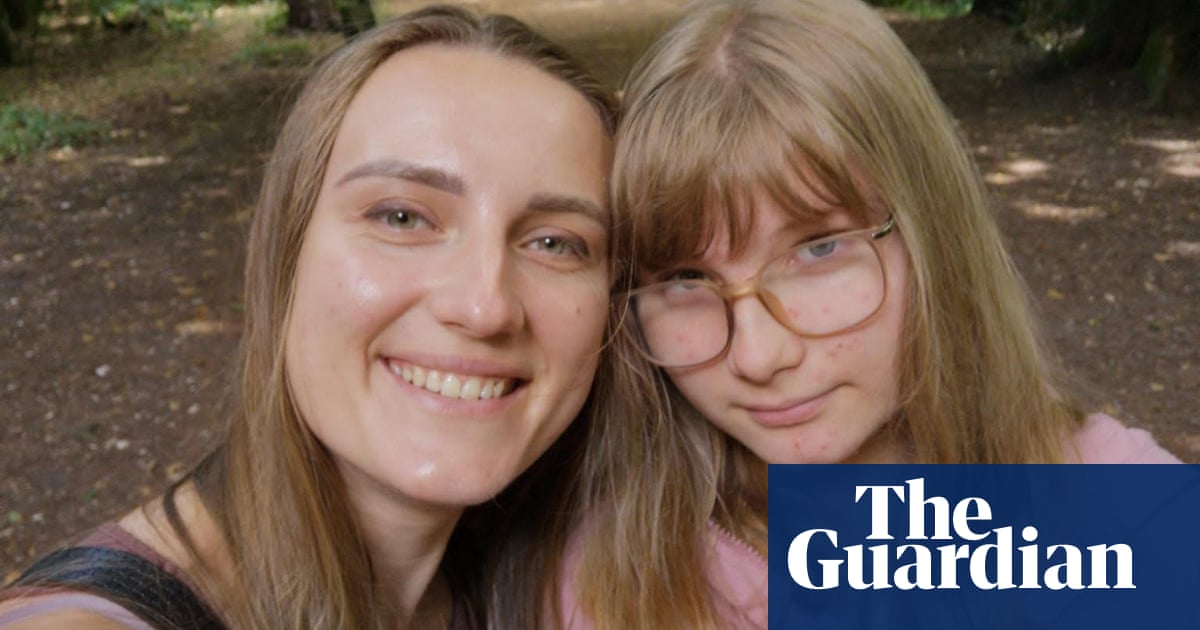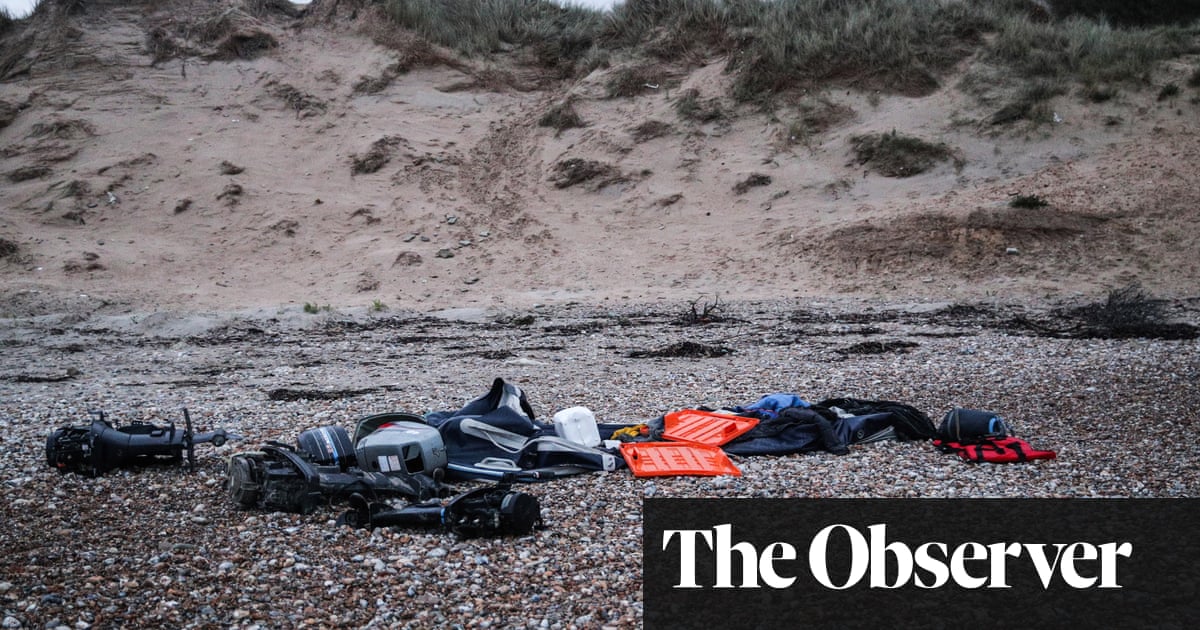
Repeated calls 30 years ago from a coroner and safety experts for railings to be installed on a sea wall in Devon after a teenager lost his life were ignored, it has emerged, after the death last year of a young Ukrainian refugee in similar circumstances.
Documents seen by the Guardian reveal that local authorities committed to painting a white line and installing warning signs – none of which remain today – after Brendon Burnage fell to his death at the age of 17 from Dawlish sea wall in Devon in 1992.
The deputy coroner for the region at the time, Robert Newman, wrote to British Rail, the then owner of the rail route that the wall protects, and Teignbridge district council to urge them to consider railings as a safety precaution, after the conclusion of Burnage’s inquest. The sea wall is owned by a successor to British Rail, Network Rail.
In March last year, 14-year-old Albina Yevko fell from the wall and was pronounced dead shortly after. An inquest into her death is yet to resume but her mother and host family understand that the police have concluded her death was an accident.
Her death prompted Daniel Pooley, a friend of Burnage’s who leapt into the sea to try to save his friend in 1992, to uncover a batch of documents from local archives that show what authorities did and did not do in the aftermath of the tragedy.
Calls for safety railings were backed up by the Royal Society for the Prevention of Accidents (Rospa) in a report commissioned by Teignbridge district council.
Other papers show that the two local authorities – Teignbridge district and Devon county council – decided to paint a white line on top of the wall and erect warning signs. None of these exist today: the white line has been eroded and the signs have vanished.
Inna Yevko, Albina’s mother, who remains in Dawlish and is working as an NHS administrator, told the Guardian: “I cannot describe the pain of realising that people ignoring previous coroner’s advice has cost my beautiful daughter her life. Every day is a battle to live without her.”
Rosie Dawson, who took in Inna and Albina under the Homes for Ukraine scheme launched in the wake of Russia’s invasion in 2022, said: “It’s clear to see that if the previous recommendations had been followed regarding railings, Albina would not have died. A trip, a slip, a stumble would not have cost her her life and triggered the ripples of devastation that have followed.
“It is terrifying to think that if it continues to be ignored, we will be reading about another death at some point. A jogger, a walker, a child … anyone can fall.”
Teignbridge district council commissioned the Rospa report after Burnage’s death in 1992 to consult on future safety arrangements.
The report said while there were stretches of the wall with “double rails” to protect from a fall down on to the beach or into the sea, “there are long stretches of sea wall with no form of protection”.
It went on: “We recommend therefore that the rails be continued along the whole sea wall where the drop is greater than 2 metres. This will help prevent falls and protect people from being pulled off by the sea in rough weather.”
Pooley, now 51, said: “I feel incredibly frustrated, particularly I absolutely feel for Albina’s mother and Rosie Dawson for what they’re going through right now, because like Brendon’s mother, Angela Burnage, I feel this could have been prevented and very frustrated that we were ignored.
“We raised the concerns. Everyone knew the concerns but they just wanted it to go away. They wanted to ignore us. And they came up with a solution to make it go away. They didn’t come up with a solution to prevent to save lives.
“I want them to be remembered. I want to prevent a third death. And I don’t want to see you go through this again a third time. And I want peace for the mothers to grieve for their children.
“They shouldn’t have to keep fighting the same stonewalling, they shouldn’t have to keep fighting like that. They should be allowed to grieve and they should be able to know that the wall is safe, and it’s not going to happen to another mother.”
A Devon county council spokesperson said: “The sea wall is a popular, well-used stretch of the South West Coast Path and no less safe than many other sections of the National Trail. However, in March 1994 Devon county council agreed to fund additional signs and the trial use of a white line as a visual aid along the sea wall at the higher sections between Dawlish and Dawlish Warren.
“The effectiveness and robustness of a white line was uncertain, particularly with regards to exposure to high tides and stormy weather conditions. Coastal conditions soon eroded the white line and the trial was not subsequently adopted into maintenance regimes.”
Teignbridge district council said responsibility for the wall lay with Network Rail.
The council pointed to minutes of a discussion at the 5 December meeting of the council’s executive concerning Albina Yevko’s death. These read: “Executive called for dialogue with Network Rail to install handrails along the sea wall and stated that it was their responsibility to ensure that the sea wall was safe … Resolved to arrange to meet with Network Rail on site at the Dawlish sea wall to discuss safety matters with them and to write to the coroner and Network Rail to ask for improved safety to prevent such a tragedy happening again.”
A Network Rail spokesperson said they were limited in what could be said until the inquest takes place later this year. They said: “We were saddened to hear of the passing of Albina Yevko and we’ve met with the family to express our condolences and talk to them about the sea wall. Handrails along all sections of the sea wall would be difficult to install and maintain effectively given the harsh coastal environment. However, now that we have completed the new sea wall at Dawlish, which has a parapet, we are looking again at safety on the original wall.”












